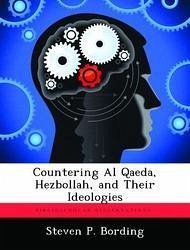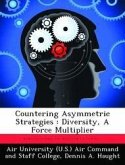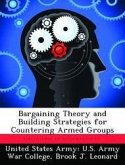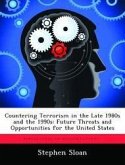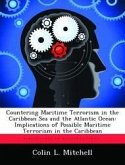While all warfare is an expression of politics, none is more pervasively so than irregular conflict. The irregular side, most probably employing a mixture of guerilla tactics and terrorism, will seek favorable political effect from several courses of action. Combating terrorism has become a global effort. Counterterrorism is a struggle of political wills, waged preeminently by the police and other security services, with the military acting in reserve. The most important weapon for the counter-terrorist is information. The war of ideas is crucial to today's terrorist, guerilla, and insurgent. Two of major terrorist organizations that pose the greatest potential threat to the United States are Al Qaeda and Hezbollah; both are motivated by two very powerful yet distinct ideologies. Al Qaeda and Hezbollah may not share the same ideology, but ideology is a key component of why these groups undertake violent action. An ideology is a framework of ideas that describes a view of reality and a set of social and political actions that should be undertaken to change and improve the situation of a particular group. To succeed the insurgent or terrorist must win the war of ideas; the counter-terrorism forces cannot allow this to happen. Ideologies are thus difficult to combat using military forces, because ideas are extremely difficult to contain or destroy. Both Al Qaeda and Hezbollah thrive in the absence or weakness of governments and often operate in ungoverned regions, taking advantage of weak national control to smuggle weapons, money, and other resources. Unable to compete in a direct confrontation with regular, host nation forces, these groups use asymmetric tactics such as terrorism to engage their enemies and further their ideologies. This paper furthers the understanding of disparate insurgencies through a comparative analysis of Al Qaeda and Hezbollah. The main goal is to show that the crucial divergence between Hezbollah and Al Qaeda allows for differing opportunit
Hinweis: Dieser Artikel kann nur an eine deutsche Lieferadresse ausgeliefert werden.
Hinweis: Dieser Artikel kann nur an eine deutsche Lieferadresse ausgeliefert werden.

